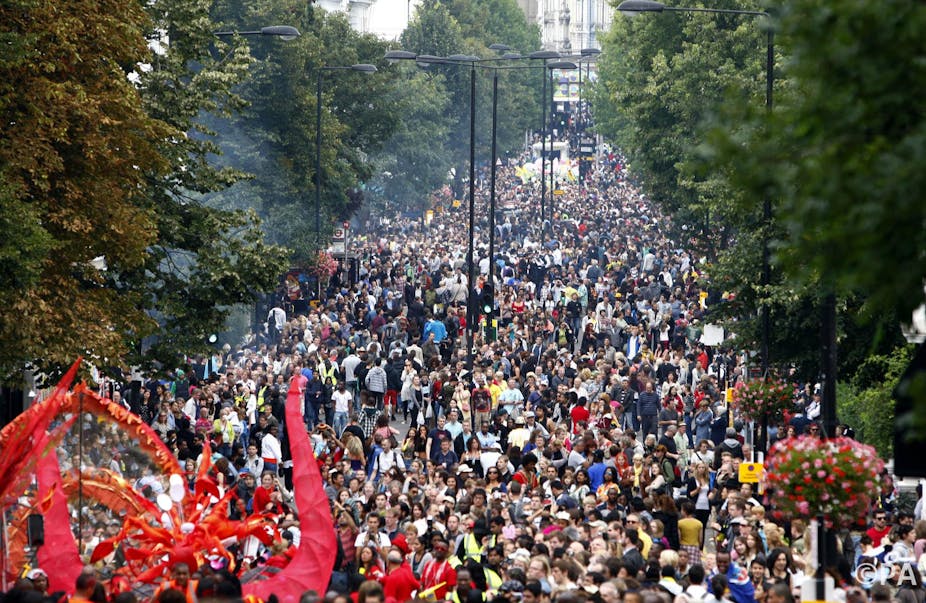How far do facts and evidence get us in public debates and policy formulation on immigration? And how far should they take us?
Data on migration and its social and economic impact are of course vital for effective policy making. This holds true whether government seeks to reduce or promote immigration, boost overall economic growth or pursue policies that protect certain classes or sectors, or address “illegal” immigration by cracking down or regularising “undocumented” migrants or anything in between.
In each of these cases, effective policymakers will want information about the phenomena they are addressing and, as far as possible, analysis to help figure out which sorts of policy changes are likely to have the effects they desire.
Data and evidence-based analysis are also essential for evaluating policy outcomes, and assessing whether they deliver on their own terms. When goals are explicit, such as the current Conservative party goal of reducing net migration to less than 100,000 per year, this task is relatively straightforward (although even here there are limits to the precision of official data).
Emotion and politics
What data and cost-benefit analyses cannot do is tell anyone how they should think about immigration. People’s political choices are often shaped by values such as a sense of fairness, by emotions such as empathy, or by identification with a particular vision of a nation or a local community.
This is true across the political spectrum and on many issues. For example, many individuals vote against their so-called “class interests.” Poor and middle class people may support low tax, low social spending policies that conform with their values rather than their pocketbooks; likewise, rich people may support a generous welfare state out of values or empathy rather than financial self-interest.
Citizens often make political judgements that conform to their values rather than self-interest or collective costs and benefits. This is an accepted part of democracy, and judgements about immigration are no exception. In fact, it may be an issue especially likely to generate reactions based on values, emotions, or identities.
Accounting for culture
Research shows that attitudes to immigration are shaped most powerfully by so-called “cultural” factors, rather than by data about numbers or economic impact. For example, people who understand and identify with the British nation in terms of ancestral and ethnic identities (rather than in terms of civic and democratic values) are more likely to want less immigration.
More generally, numerous studies across Europe have shown that a sense of “group conflict” often underlies anti-immigration preferences rather than pure economic interests. In other words, responses to a question like “Do you think parts of Britain feel like a foreign country?” are as important to public attitudes as “Do you think immigration has been good or bad for Britain’s economy?”
Quantifying the unquantifiable
This is all well and good, but it does create a particular challenge for public debate and policy-making on immigration. Concerns based in national identity are harder to include in conventional policy debate or cost-benefit analyses. Policy impact assessments quantify economic costs and benefits but struggle to weigh these balance sheets against, say, public confidence in the immigration system. At a deeper level, the challenge is to find a way to include the unquantifiable or intangible in the national immigration debate.
Alan Manning, an eminent labour economist, argues that the key flaw in British multiculturalism was not a failure to successfully integrate ethnic minorities into the wider society. Rather, the main shortcoming was that implementation paid “little or no attention to white natives, taking their identity and values for granted”. Manning cites recent Citizenship Survey data showing that a substantial minority of the “white British” ethnic group feel discriminated against by public services.
The limits of data
Perhaps the best example of the limits of data and numbers in the migration debate is the somewhat paradoxical situation facing the current government. Concerns about immigration are at the highest levels since the last general election, and confidence in the Conservative party on immigration has fallen despite the fact that annual net migration has fallen from 255,000 to 153,000 in two years.
For scholars of public attitudes to immigration, this is not terribly surprising. Large majorities of British people have favoured reduced levels of immigration consistently in survey research dating back to the 1960s, even when the numbers were much smaller. People who think there should be less immigration when net migration is at 250,000 per year may not be suddenly satisfied when net migration drops to 150,000 or perhaps even 100,000 or 50,000.
Perhaps even more troubling (not just for Conservatives but for all of Britain) is the way the immigration issue undermines confidence not only in politicians but in our political institutions as a whole.
Immigration may have only a small impact on the nation’s financial balance sheet, but it seems to have a considerable impact on less tangible matters that are nonetheless of considerable import to many voters.
For some citizens in an immigrant-receiving nation, new arrivals can represent a changing sense of place very close to home. For others, new arrivals mean changing the collective national identity. This is no less a part of the immigration debate than the quantifiable economic costs and benefits, and needs to be treated as such.
How to do so is a puzzle that the country has yet to solve, but it points to the limits of data and evidence in Britain’s migration debate.

